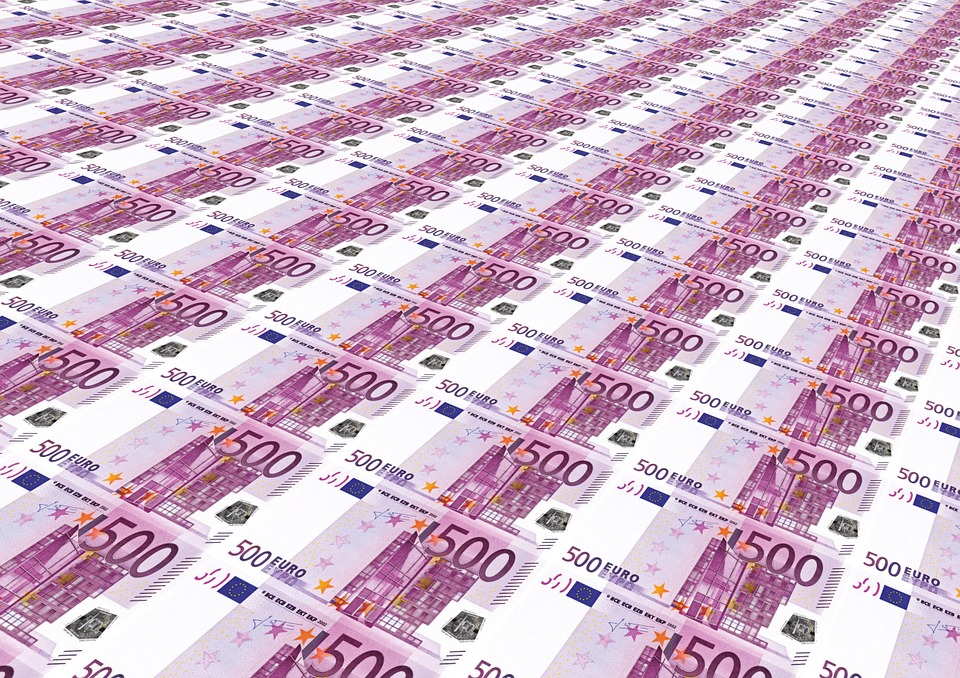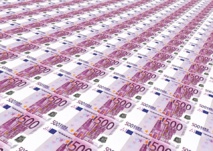Thus, the policy of quantitative easing (QE), implemented by the ECB, is bearing fruit.
The total volume of bank lending in the past month increased by 0.9% compared with July 2014, after increasing by 0.2% a month earlier.
Credit growth compared to June amounted to 0.3%.
The volume of loans granted by banks to homeowners jumped in July by 1.9%. In June, the index increased by 1.7%.
The money supply in the euro area (aggregate M3) last month rose by 5.3% (4.9% in June), the ECB said in a statement.
Currently, the ECB buys government bonds, corporate bonds and asset-backed securities (ABS), amounting to 60 billion euros a month under the current program of quantitative easing (QE), which received the name ‘Public Sector Purchase Programme’ in the euro zone.
The programme will be running until the end of September 2016 or unless the stability of inflation reaches 2% per annum, targeted by the bank.
Meanwhile, a few days ago, analysts at UBS downgraded the outlook for economic growth in the Eurozone for 2015-2016, reports MarketWatch.
Experts predict GDP growth of 1.4% this year against a previous estimate of 1.6%. The forecast for next year has been lowered to 1.9% from 2%.
However, the bank's analysts said that they are constructively sympathetic in relation to the economic recovery of the Eurozone.
Later, the international rating agency Moody's confirmed the forecast for GDP growth in the Eurozone of 1.5% for this and next year, noting that the fact, that Greece is likely to remain in the currency bloc, has a positive impact on business confidence in Europe.
The European Central Bank in early June has kept growth forecast for the euro zone economy in 2015 at around 1.5%, in 2016 - at around 1.9%. This coincides with the expectations of the European Commission.
The total volume of bank lending in the past month increased by 0.9% compared with July 2014, after increasing by 0.2% a month earlier.
Credit growth compared to June amounted to 0.3%.
The volume of loans granted by banks to homeowners jumped in July by 1.9%. In June, the index increased by 1.7%.
The money supply in the euro area (aggregate M3) last month rose by 5.3% (4.9% in June), the ECB said in a statement.
Currently, the ECB buys government bonds, corporate bonds and asset-backed securities (ABS), amounting to 60 billion euros a month under the current program of quantitative easing (QE), which received the name ‘Public Sector Purchase Programme’ in the euro zone.
The programme will be running until the end of September 2016 or unless the stability of inflation reaches 2% per annum, targeted by the bank.
Meanwhile, a few days ago, analysts at UBS downgraded the outlook for economic growth in the Eurozone for 2015-2016, reports MarketWatch.
Experts predict GDP growth of 1.4% this year against a previous estimate of 1.6%. The forecast for next year has been lowered to 1.9% from 2%.
However, the bank's analysts said that they are constructively sympathetic in relation to the economic recovery of the Eurozone.
Later, the international rating agency Moody's confirmed the forecast for GDP growth in the Eurozone of 1.5% for this and next year, noting that the fact, that Greece is likely to remain in the currency bloc, has a positive impact on business confidence in Europe.
The European Central Bank in early June has kept growth forecast for the euro zone economy in 2015 at around 1.5%, in 2016 - at around 1.9%. This coincides with the expectations of the European Commission.



















